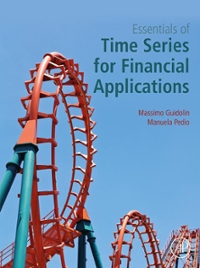Question
Suppose that a monopolist sells its product in two countries; Japan and Canada. The monopolist's marginal cost is $44 and total fixed cost is $40.
Suppose that a monopolist sells its product in two countries; Japan and Canada.
The monopolist's marginal cost is $44 and total fixed cost is
$40.
The direct market demand equations in the two countries are as
follows:
QJ = 50 0.5PJ and QC = 160 2PC;
where the subscript J denotes Japan and the subscript C denotes Canada.
3.1 (3 points) Derive a firm's total cost equation. TC = f(Q)
= ______________________
3.2 (12 points) Assume that the monopolist can prevent resale
from one market to the other (i.e., a product in Japan will not be resold in
Canada and vice versa).
a) (4 points) What quantity and price would the firm sell in
Japan to maximize profit?
QJ* = _______________ units.
PJ* = $______________
b) (4 points) What quantity and price should the sell in Canada
to maximize profit?
QC* = _______________ units.
PC* = $______________
c) (4 points) What is the firm's total profit (*)? * =
$______________
3.3 (10 points) Suppose that the monopolist cannot prevent
resale, i.e, the monopolist must charge a single price for both countries.
a) (4 points) Derive the direct total market demand equation, QD
= f(P).
QD = ___________________
b) (6 points) What would be the profit-maximizing quantity (Q*),
price (P*), and profit (*)?
Q* = _______________ units.
P* = $______________
* = $______________
Step by Step Solution
There are 3 Steps involved in it
Step: 1

Get Instant Access to Expert-Tailored Solutions
See step-by-step solutions with expert insights and AI powered tools for academic success
Step: 2

Step: 3

Ace Your Homework with AI
Get the answers you need in no time with our AI-driven, step-by-step assistance
Get Started


